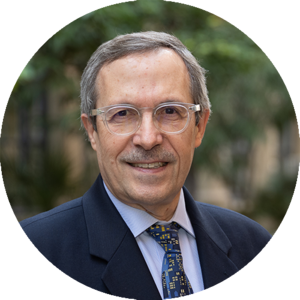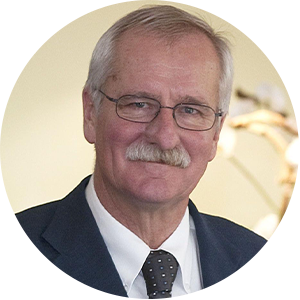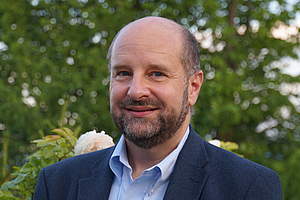Camillo Golgi Lecture - Awardees
Prof. Josep Dalmau
Camillo Golgi Lecture
Autoimmune synaptic diseases: the basics and the latest
Dr. Josep Dalmau received his MD and PhD from the University Autònoma of Barcelona, and trained in Neuro-oncology at Memorial Sloan-Kettering Cancer Center, New York, after which he joined the faculty. After 10 years and a short stay at the University of Arkansas for Medical Sciences, he moved to the University of Pennsylvania in 2002 as Professor of Neurology and director of the Laboratory for research on autoimmune and paraneoplastic disorders. He is currently Professor at the Catalan Institution for Research and Advanced Studies (ICREA)-IDIBAPS, University of Barcelona, and Adjunct Professor of Neurology at the University of Pennsylvania. Dr. Dalmau’s research is focused on immune-mediated diseases against synaptic receptors, an expanding group of neurologic and psychiatric disorders, many of them discovered by his group. Dr. Dalmau is the recipient of numerous awards; he served as Chair of the Autoimmune Neurology Section of the American Academy of Neurology, is member of the National Academy of Medicine (USA) and many other scientific societies, and is the Editor-in-Chief of Neurology, Neuroimmunology and Neuroinflammation.

Prof. Hans Lassmann
Camillo Golgi
“The Contribution of Neuropathology to Multiple Sclerosis Research”
Hans Lassmann is a retired professor of neuroimmunology at the Center for Brain Research of the Medical University of Vienna, Austria, which was founded under his direction in 1999. He has received numerous research awards, including the Charcot Award, the Research Prize of the Sobek Foundation and the International Prize for Translational Neuroscience of the Gertrud Reemtsma Foundation. He is an honorary member of the Japanese and the French Neurological Societies and a Member of the Austrian and the German (Leopoldina) Academies of Sciences.

Adriano Aguzzi, Zurich, Switzerland
Camillo Golgi Lecture
History of prion science
Adriano Aguzzi is professor and director of the Institute of Neuropathology at the University of Zurich. He has devoted the past 25 years to studying the immunological and molecular basis of prion pathogenesis, combining transgenetics with molecular and immunological techniques to clarify the pathogenesis of the disease, and to identify cells and molecules involved in prion neuroinvasion. He is the Founder and Director of the Swiss National Reference Center for Prion Diseases and has developed diagnostic and therapeutic methods in the field of transmissible spongiform encephalopathies. He serves on the editorial board of Science and is the Editor in Chief of the Swiss Medical Weekly; he also serves on the scientific advisory board of philanthropic foundations and biomedical companies. Among other honors, Prof. Aguzzi has won Ernst-Jung Prize, the Robert Koch Prize, the medal of the European Molecular Biology Organization, the NOMIS Distinguished Scientist Award and has held two ERC Advanced Grants.

Hartmut Wekerle, Munich, Germany
Camillo Golgi Lecture
The Immune Pathogenesis of Multiple Sclerosis: Degeneration, inflammation and gut microbiota – an unholy alliance
Hartmut Wekerle was director and member of the Max Planck Institute of Neurobiology. In 2012 he was awarded a Hertie Senior Professorship, and he leads an Extended Emeritus Group. Hartmut Wekerle’s scientific research focuses on the mechanisms initiating and driving Multiple Sclerosis and its experimental models, which imply autoimmune attack against the nervous system. Wekerle’s work led to the identification of brain reactive autoimmune T lymphocytes in the immune system. Most recently, he identified the commensal bacterial gut flora as a factor triggering the pathogenic potential of immune cells. He develops and uses new imaging approaches to detail the mechanisms of autoimmune T-cell migration into the brain. Wekerle has received numerous awards, including the Jung Prize, Zülch Prize, Koetser Prize, Charcot Award (MS International Federation), Grand Prix Louis D. (Institut de France), and a Koselleck Award (DFG), Jacob-Henle-Medal (University Medical Center, Goettingen). He holds an Honorary Professorship of the University of Munich and Honorary Doctorates of the Universities of Hamburg and Wuerzburg. He is a member of the German Academy of Science (Leopoldina), Honorary Member of the Société Française de Neurologie and Honorary Member of the Cuban Neuroscience Society.

Angela C. Vincent, Oxford, United Kingdom
Camillo Golgi Lecture
Autoantibodies and the Nervous System: Breadth, Depth and Challenges
Prof. Angela Vincent is Emeritus Professor of Neuroimmunology in the University of Oxford, and an Emeritus Fellow of Somerville College. Until 2016 she was an Honorary Consultant in Immunology and directed the Clinical Neuroimmunology service in Oxford which is an international referral centre for the measurement of antibodies in neurological diseases. She has spent 40 years studying autoantibodies to specific receptors, ion channels and related proteins in neurological diseases, and showing that the diseases can respond to immunotherapies that reduce antibody levels. She and her colleagues collaborate with neurologists worldwide. She was formerly Head of Department of Clinical Neurology (2005-2008), served on the MRC Neurosciences and Mental Health Board (2004-2008), was an Associate Editor of Brain and was President of the International Society of Neuroimmunology (2001-2004). Among other honours, she was awarded the medal of the Association of British Neurologists in 2009, and was elected Fellow of the Royal Society of the UK in 2011.

Giacomo Rizzolatti, Parma, Italy
Camillo Golgi Lecture
The mirror mechanism: social and medical implications
Prof. Giacomo Rizzolatti, was born in Kiev, in the former Soviet Union. He studied at University of Padua where he graduated in Medicine and obtained the specialization in Neurology. He spent three years at the University of Pisa at the Institute of Physiology, directed at that time by Prof. Giuseppe Moruzzi. His subsequent academic carrier took place mostly at the University of Parma where he started as an Assistant in Human Physiology and became Professor of Human Physiology, which is still his present academic position. He spent one year in the Department of Psychology of the McMaster University, Hamilton, Ontario, Canada and one year, as a Visiting Professor, in the Department of Anatomy of the University of Pennsylvania, Philadelphia. Since the early nineties he has a close collaboration with the Department of Computer Science and Neuroscience of the University of Southern California, Los Angeles and with Ahmanson Lovelace Brain Mapping Center of UCLA, Los Angeles.
He was President of the European Brain Behavior Society and Italian Society for Neuroscience. For several years he directed the European Training Program in Brain and Behaviour Research (ETP) sponsored by the European Science Foundation and for a short time he has been a member of the "European Medical Research Council".
At present he is a member of Scientific Committee of "Fondation Fyssen" and Associate Member of the Neuroscience Program directed by Gerald Edelman, San Diego.
Among his major awards are the "Golgi Prize for Physiology", "George Miller Award" of the Cognitive Neuroscience Society, the "Feltrinelli Prize for Medicine" of Accademia dei Lincei, and the Herlitzka Prize for Physiology, Accademia delle Scienze di Torino.
He received Honorary Degrees from the University Claude Bernard of Lyon, from the University of St. Petersburg, St. Petersburg, the Grawemeyer Prize for Psychology from the University of Louiseville (USA) and the Prix J.-L. Signoret in Neuropsychologie from the IPSEN Fondation.
